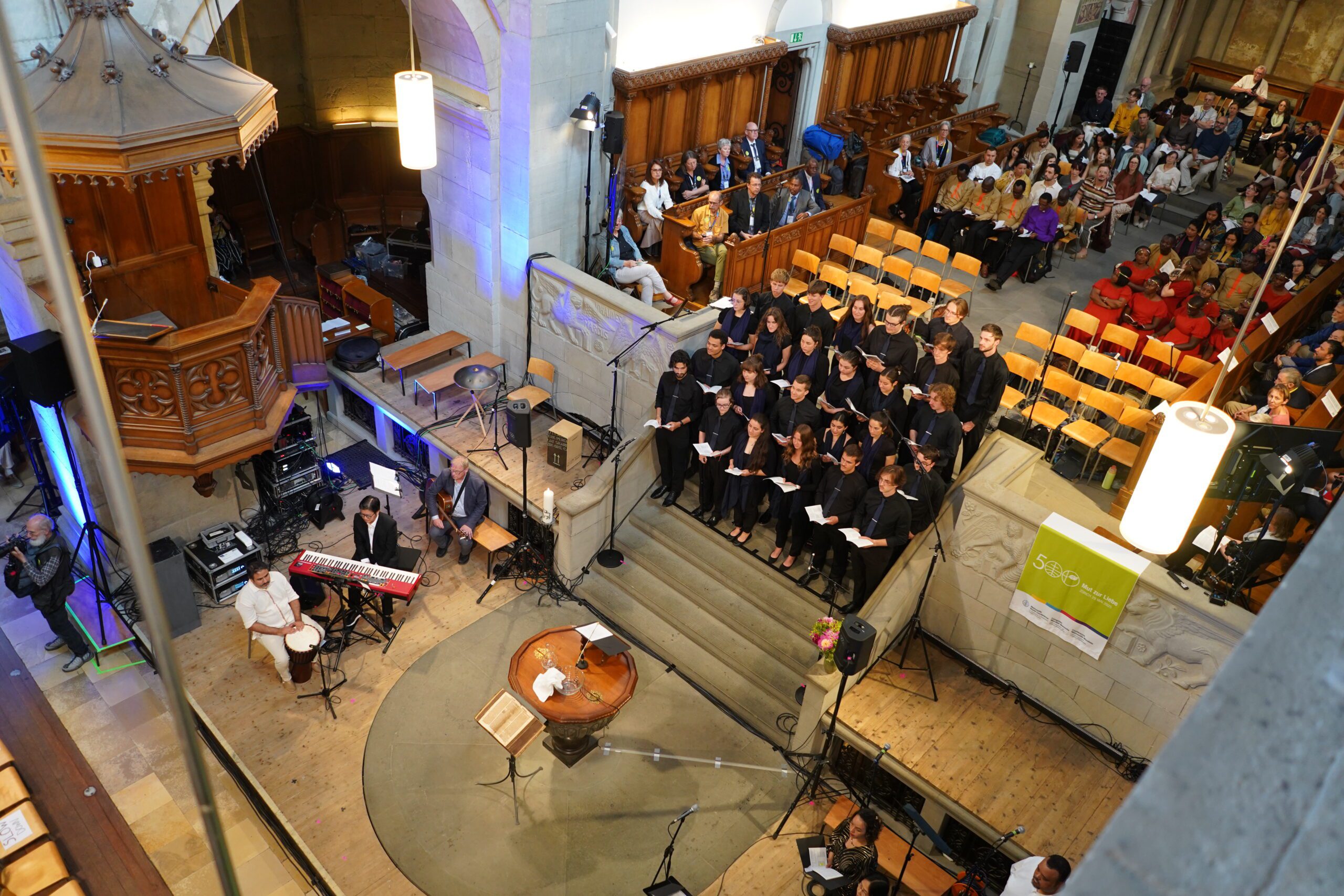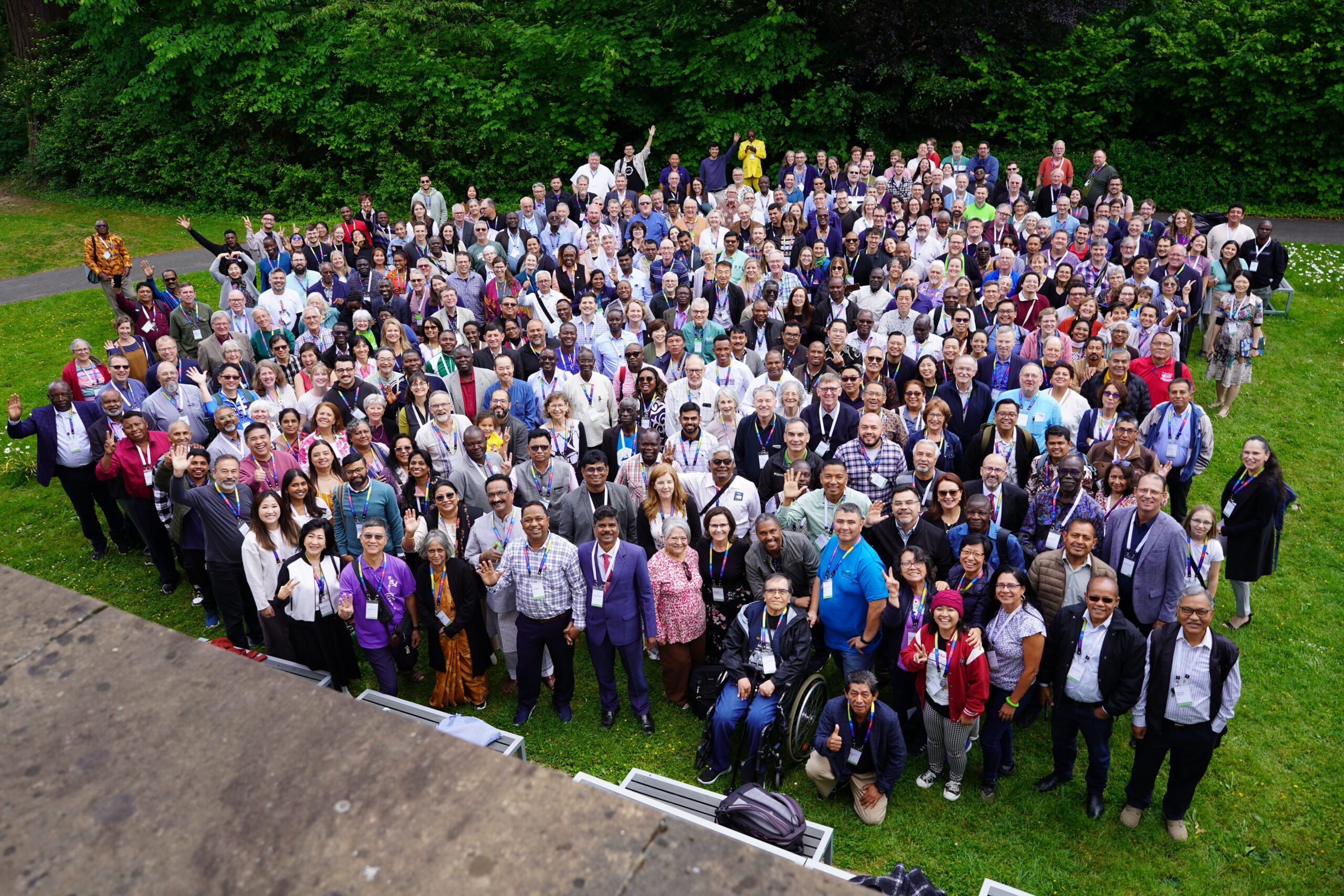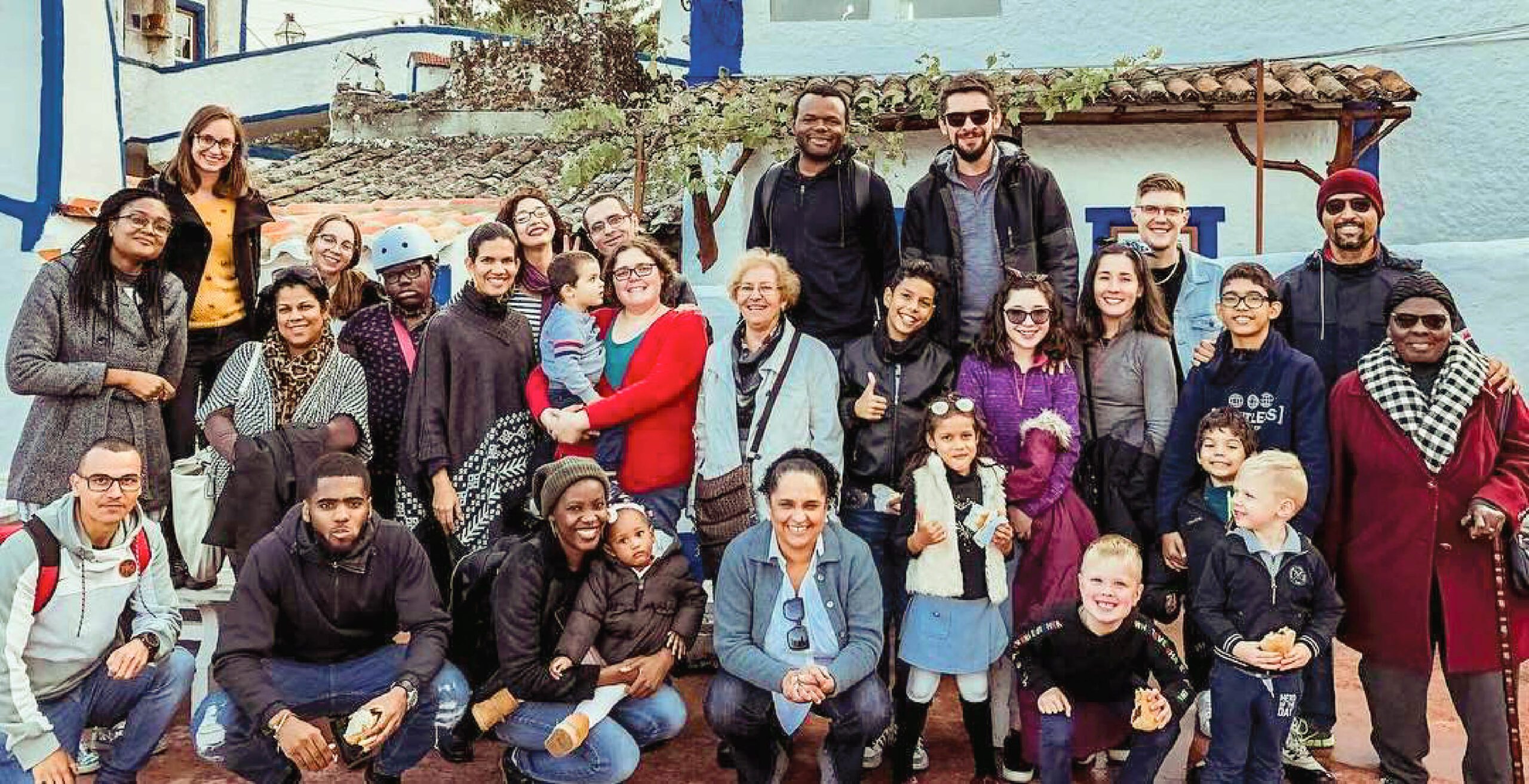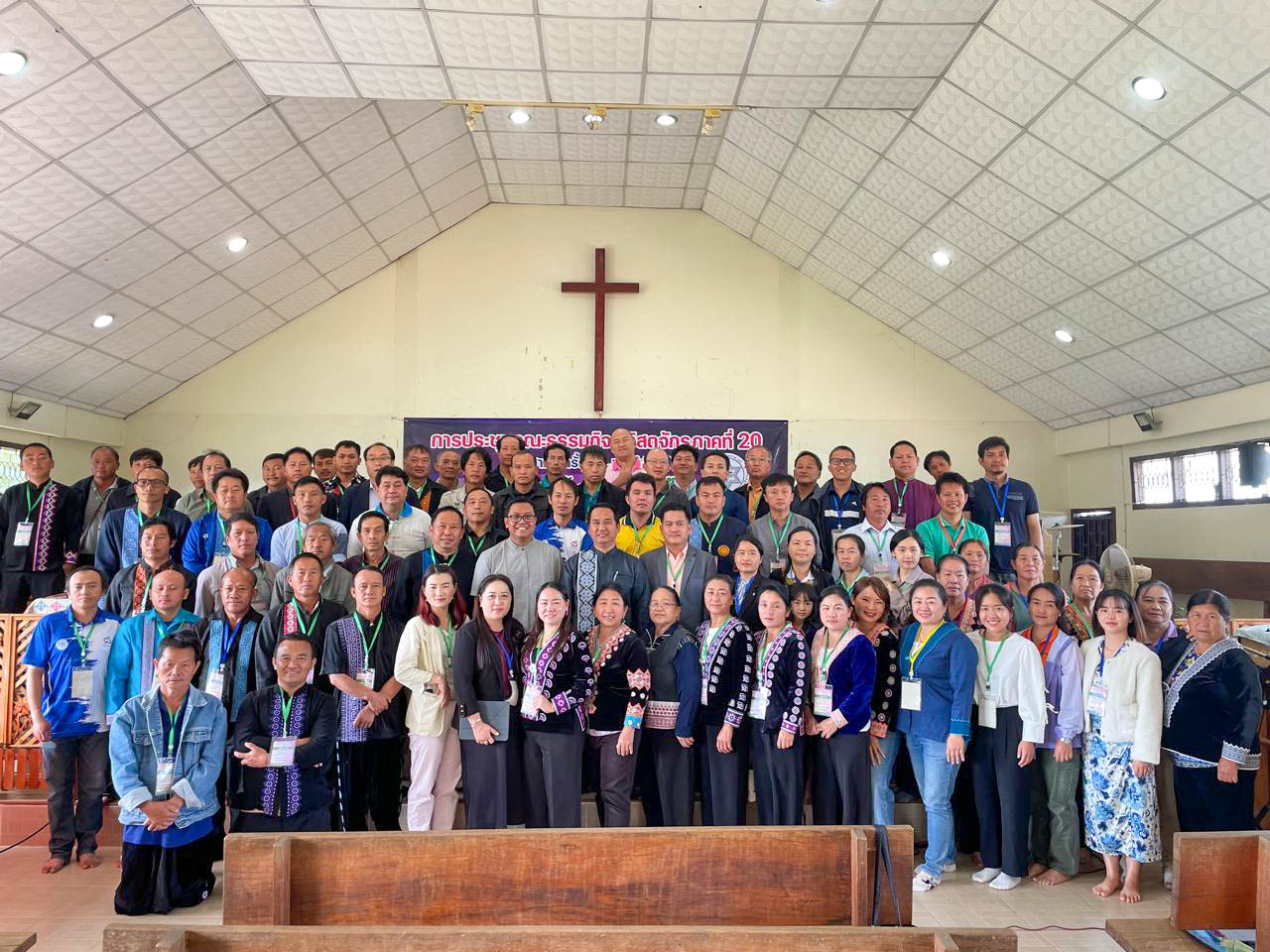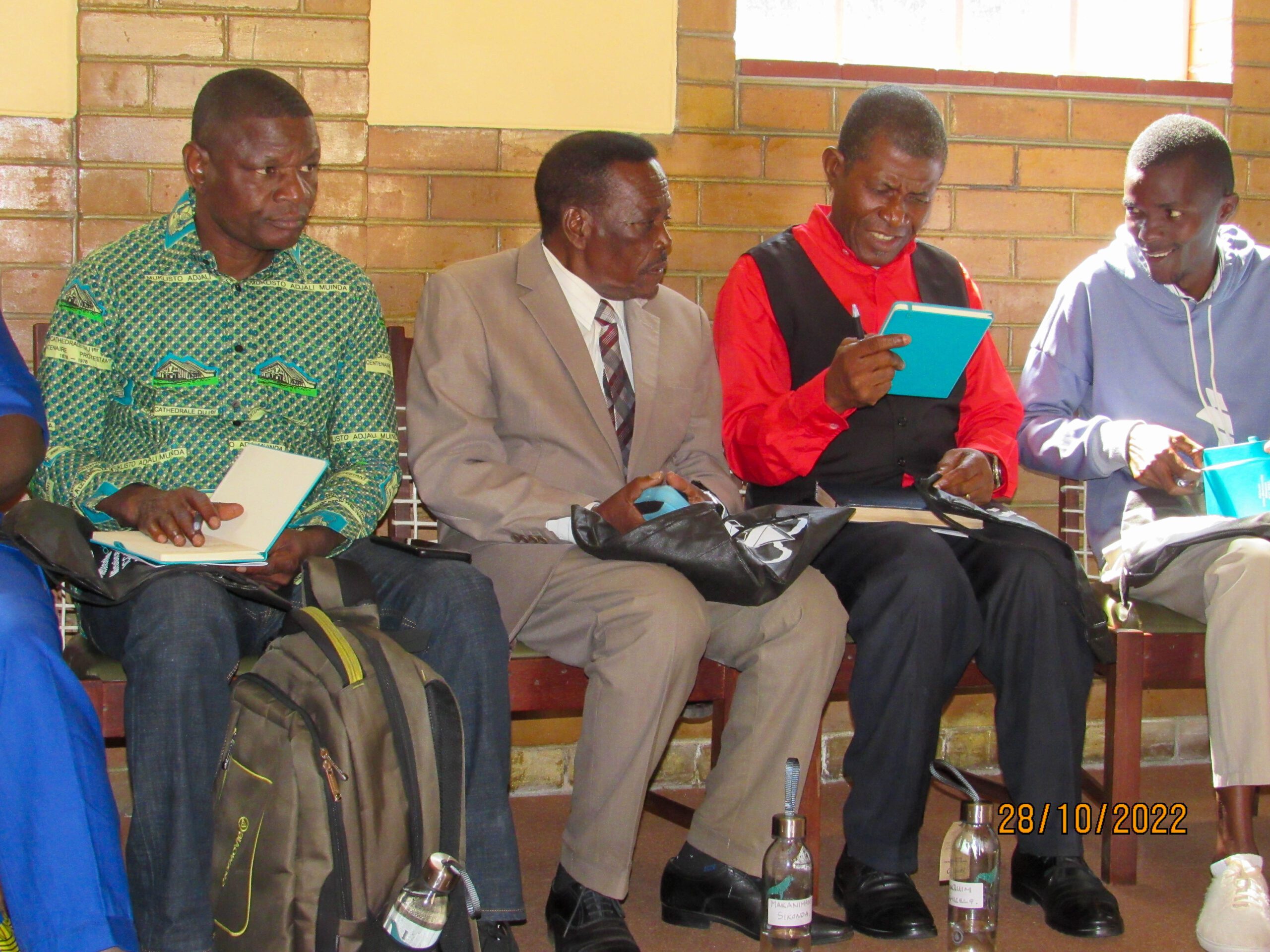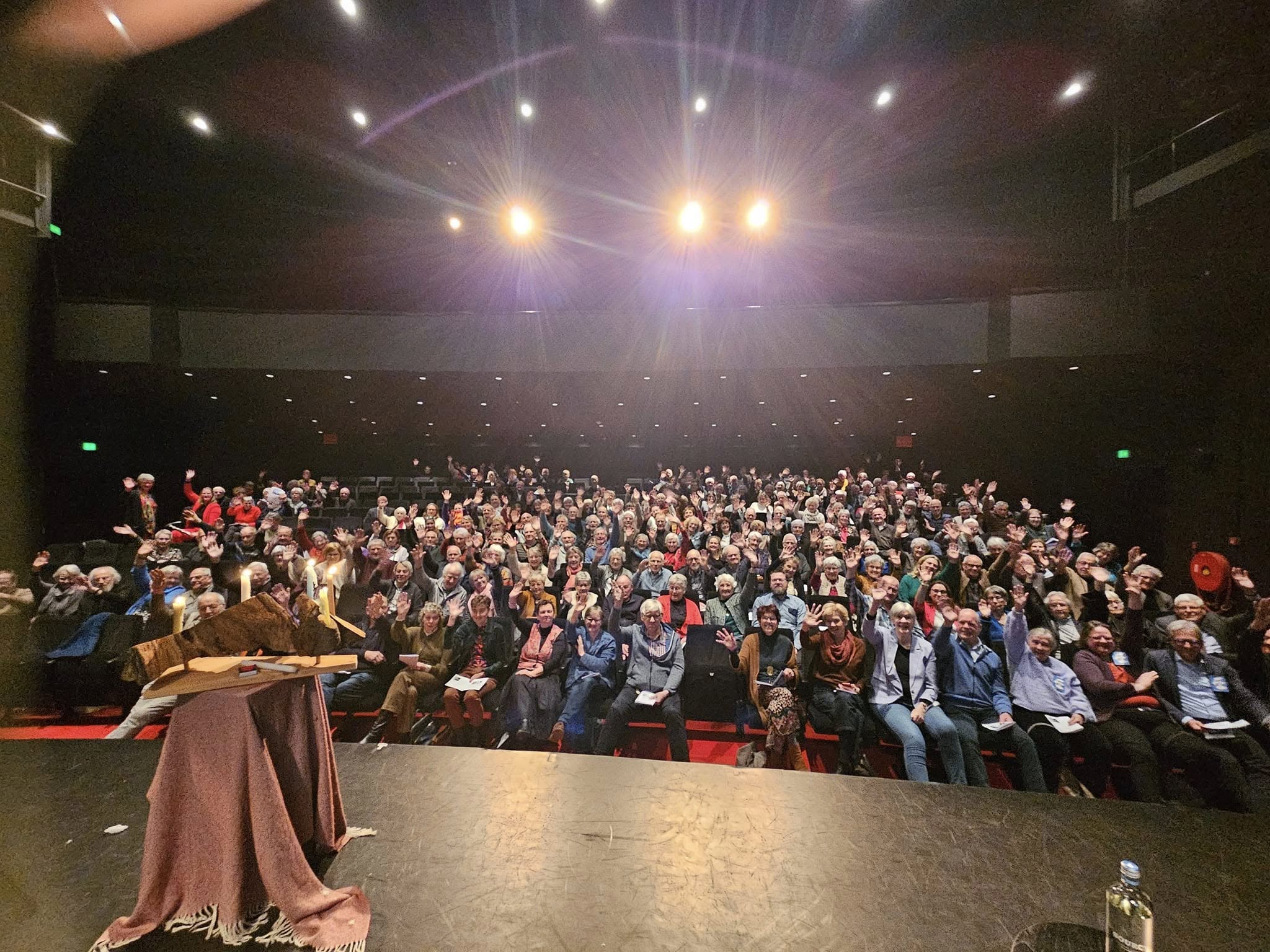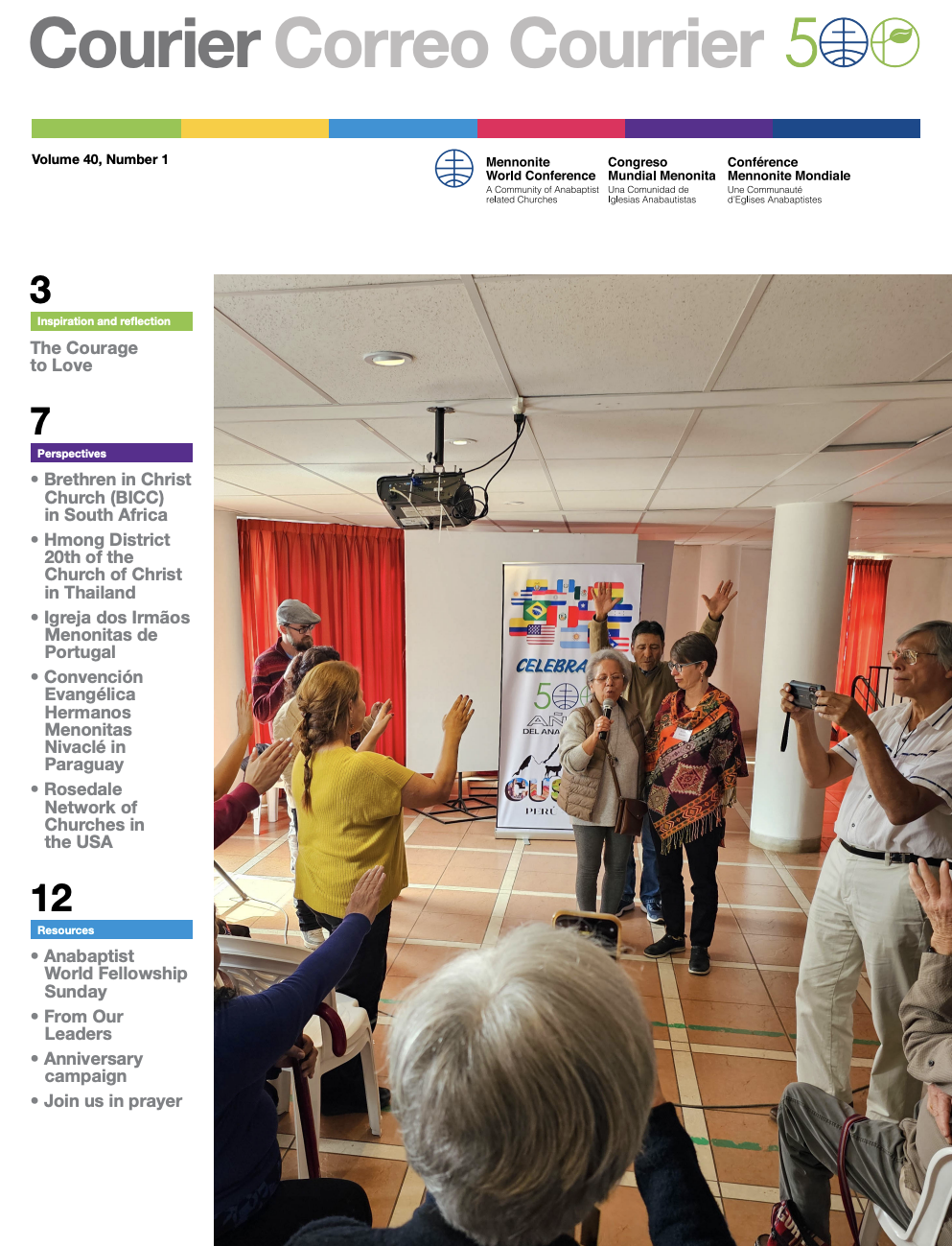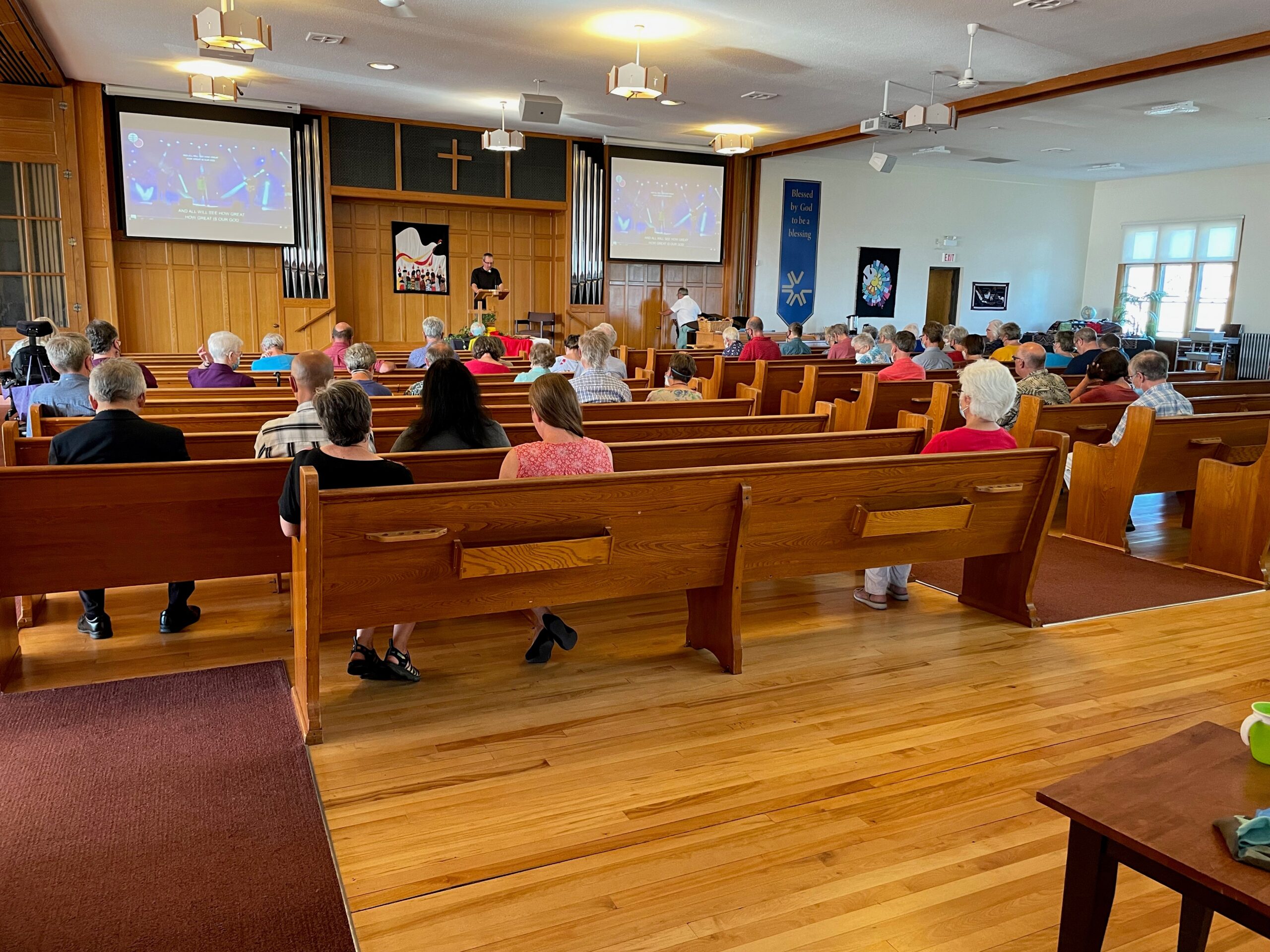-
A movement that has been diverse and international
The bells rang out across the city that full of Anabaptists. An estimated 3 500 or more people filled the streets of old Zurich on Ascension Day 29 May 2025 to commemorate the 500th anniversary of Anabaptism. “Today, as Mennonites in Switzerland we are a small community,” said Gladys Geiser & Lukas Amstutz, co-presidents, Konferenz der…
-
Anabaptism@500 Musical ensembles
Eastleigh Fellowship Centre (EFC) Mennonite Church Choir Eastern Mennonite University (EMU) Chamber Singers TIARA (The Indonesian Anabaptist peRforming Art) Song of Peace Ágape Band
-
From celebration to commemoration
Mennonite World Conference (MWC) concludes its triennial General Council (GC) meeting 26-28 May 2025 in Schwäbisch-Gmünd, Germany, with a clear framework for the future.
-
Igreja dos Irmãos Menonitas de Portugal
Courier: Perspectives Europe: Portugal Anabaptist church beginnings: A snapshot A series of North American missionary couples came and went from the MB mission agency through the 1980s and 1990s but the seeds planted in a house church in the Lourés suburb of Lisbon have persisted in the form of a Mennonite Brethren church. The first…
-
Hmong District 20th of the Church of Christ in Thailand
Courier: Perspectives Asia: Thailand Anabaptist church beginnings: A snapshot The Hmong District 20th of the Church of Christ in Thailand began with three congregations: Khek Noi church, Khun Klang Church and Pa Kluai Church. Later, the gospel was announced and spread to the Hmong hill tribe people during the years starting in 1987. There was…
-
Brethren in Christ Church (BICC) in South Africa
Courier: Perspectives Africa: South Africa Anabaptist church beginnings: A snapshot Brethren In Christ Church (BICC) South Africa was established in 1988 by the late Reverend Hamilton Madlabane in Soshanguve, located north of Pretoria. Even though a South African started the BICC in South Africa, it was largely unknown to most South Africans at the time.…
-
The Courage to Love: Anabaptism@500 event video
On 29 May 2025, Mennonite World Conference (MWC) welcomed guests from around the world to The Courage to Love: Anabaptism@500. The day-long celebration commemorated the birth of the Anabaptist movement in Zurich, Switzerland. Following workshops, concerts, a panel discussion and self-guided historical walking tours, participants gathered for a worship service with ecumenical participation at the…
-
The Courage to Love
Some of us have a tendency of thinking that we should define right doctrine and from there go to practice. Scripture first; experience next. But in many ways – in our history and in our current reality – experience pushes us to think theologically to make sense of what is happening.
-
Courier 2025 / 40.1
A challenge for the ages It’s a double – even triple – anniversary for Mennonite World Conference this year. For one hundred years, Anabaptist-related national churches have been meeting together to acknowledge we are one body of Christ together, and to encourage and help each other in fellowship, worship, service and witness. For five hundred…
-
A celebration of ecumenism, joy, confession and hope
We invite everyone to worship with us! The worship service marking the culmination of Mennonite World Conference’s 500th anniversary event in Zurich, Switzerland, will be livestreamed. The event takes place Thursday, 29 May 2025, at 15:00 UTC. (Please note an earlier version gave the incorrect time. 15:00 UTC is when the service begins; tune in…
